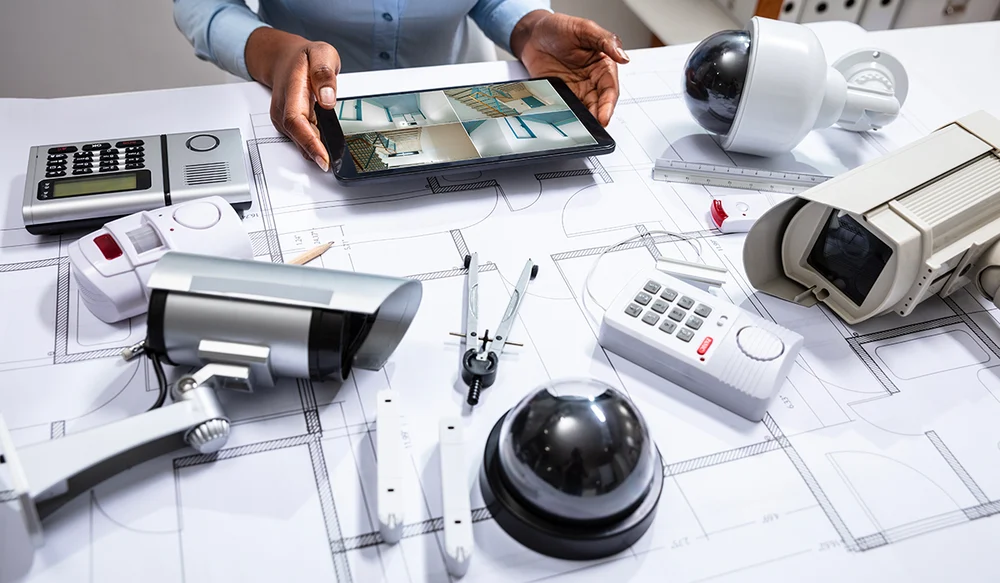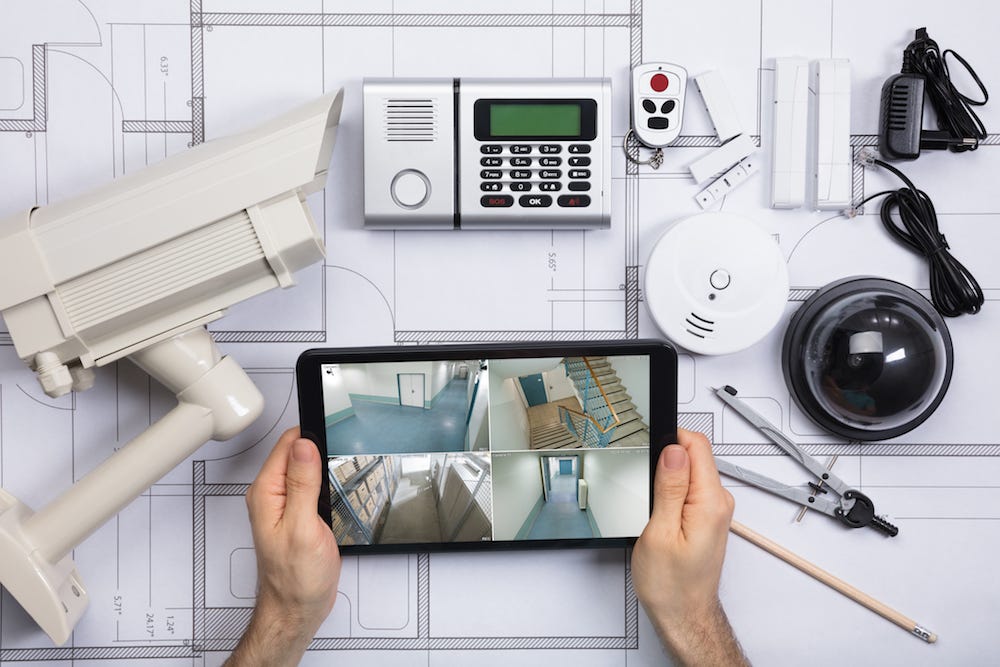Choosing Commercial Security Systems: A Comprehensive Overview
In an era where security concerns are at an all-time high, businesses must prioritise the safety of their assets, employees, and customers. Selecting the right commercial security system is crucial for safeguarding against potential threats. This comprehensive overview aims to guide business owners through the complexities of choosing the most effective security solutions tailored to their specific needs.
Understanding the Importance of Security Systems
Commercial security systems are designed to protect businesses from various threats, including theft, vandalism, and even cyber-attacks. With the rise in crime rates and the increasing sophistication of criminal activities, investing in a robust security system has become a necessity rather than a luxury.
Protection Against Theft
Theft can have devastating consequences for a business, both financially and reputationally. A well-implemented security system can deter potential thieves and provide peace of mind for business owners. Surveillance cameras, alarm systems, and access control measures can significantly reduce the risk of theft, ensuring that valuable assets are protected.
Enhancing Employee Safety
Beyond protecting physical assets, security systems play a vital role in ensuring the safety of employees. A secure workplace fosters a sense of safety and wellbeing, which can lead to increased productivity and employee satisfaction. Features such as panic buttons, emergency exit alarms, and access control systems contribute to a safer working environment.
Key Components of Commercial Security Systems
When considering a commercial security system, it is essential to understand the various components that can be integrated to create a comprehensive solution. Each component serves a specific purpose, and together they form a robust security framework.
Surveillance Cameras
Surveillance cameras are perhaps the most recognisable element of any security system. They serve multiple functions, from monitoring activity within and around the premises to providing evidence in the event of a crime. Modern cameras come equipped with advanced features such as high-definition video, night vision, and remote access capabilities, allowing business owners to monitor their property in real-time.
Alarm Systems
Alarm systems are crucial for alerting business owners and law enforcement to potential breaches. These systems can be triggered by motion detectors, door/window sensors, or even glass-break sensors. The integration of alarm systems with surveillance cameras can enhance the overall effectiveness of a security setup, providing immediate alerts and visual confirmation of incidents.
Access Control Systems
Access control systems are essential for regulating who can enter specific areas within a business. This can range from simple keycard systems to sophisticated biometric scanners. By limiting access to sensitive areas, businesses can protect valuable information and assets from unauthorised personnel.
Evaluating Security Needs
Before selecting a security system, it is crucial to evaluate the specific needs of the business. This involves conducting a thorough risk assessment to identify vulnerabilities and potential threats. Understanding the unique requirements of the business will aid in choosing the right combination of security components.
Conducting a Risk Assessment
A risk assessment involves analysing the physical layout of the premises, identifying potential security weaknesses, and considering the nature of the business. For instance, a retail store may require a different security setup compared to a warehouse or an office building. Engaging with security professionals can provide valuable insights into the most effective measures for mitigating risks.
Budget Considerations
Budget is often a significant factor in the decision-making process. While it may be tempting to opt for the cheapest option, it is essential to consider the long-term value of investing in a quality security system. A well-designed security solution may require a higher initial investment but can save businesses money in the long run by preventing losses and minimising insurance premiums.
Choosing the Right Provider
Once the security needs have been assessed, the next step is selecting a reliable security provider. The choice of provider can significantly impact the effectiveness of the security system.
Researching Security Providers
When researching security providers, it is vital to consider their reputation, experience, and customer reviews. A provider with a solid track record in the industry is more likely to deliver a reliable and effective security solution. Additionally, seeking recommendations from other business owners can provide valuable insights into the best providers in the area.

Evaluating Services Offered
Not all security providers offer the same range of services. Some may specialise in specific areas, such as surveillance systems, while others may provide comprehensive security solutions that include installation, monitoring, and maintenance. It is essential to choose a provider that can meet the specific requirements of the business and offer ongoing support. Learn more about how business security systems safeguard your company’s assets.
Integration and Technology
In today’s digital age, technology plays a crucial role in enhancing the effectiveness of commercial security systems. Integrating various components into a cohesive system can provide businesses with greater control and flexibility.
Smart Security Solutions
Smart security solutions leverage the Internet of Things (IoT) to provide enhanced monitoring and control. These systems allow business owners to access security feeds remotely, receive real-time alerts, and even control security features from their smartphones. The convenience and accessibility of smart security solutions make them increasingly popular among businesses.
Cybersecurity Measures
As businesses become more reliant on technology, the importance of cybersecurity cannot be overstated. Protecting sensitive data from cyber threats is as critical as physical security. Implementing measures such as firewalls, encryption, and regular software updates can help safeguard against cyber-attacks. Many security providers now offer integrated solutions that combine physical and cybersecurity measures for comprehensive protection.
Training and Awareness
Even the most advanced security systems can be rendered ineffective without proper training and awareness among employees. Ensuring that staff are educated about security protocols and procedures is essential for maintaining a secure environment.
Employee Training Programs
Implementing regular training programs can help employees understand the importance of security and how to respond in various situations. Training should cover topics such as recognising suspicious behaviour, responding to alarms, and understanding access control protocols. A well-informed workforce is a critical component of any security strategy.
Creating a Culture of Security
Fostering a culture of security within the workplace encourages employees to take an active role in maintaining safety. Encouraging open communication about security concerns and promoting vigilance can create an environment where everyone feels responsible for security. This collective effort can significantly enhance the overall effectiveness of the security system.
Regular Maintenance and Upgrades
After implementing a security system, ongoing maintenance and upgrades are essential to ensure its continued effectiveness. Regular checks and updates can help identify potential vulnerabilities and keep the system functioning optimally.
Scheduled Maintenance
Establishing a schedule for regular maintenance checks can help identify issues before they become significant problems. This may include testing alarm systems, checking camera functionality, and ensuring that access control systems are operating correctly. Many security providers offer maintenance contracts that include regular inspections and updates.
Staying Updated with Technology
As technology continues to evolve, businesses must stay informed about the latest advancements in security solutions. Upgrading to newer systems or integrating additional features can enhance the overall security posture of the business. Regularly reviewing the security setup and making necessary adjustments can help address emerging threats and vulnerabilities.

Conclusion
Choosing the right commercial security system is a critical decision that requires careful consideration of various factors, including the specific needs of the business, budget constraints, and the reputation of security providers. By understanding the importance of security systems, evaluating security needs, and investing in the right technology, businesses can significantly enhance their security posture.
Moreover, fostering a culture of security within the workplace and ensuring regular maintenance and upgrades will contribute to a safer environment for employees and customers alike. In an ever-evolving landscape of security threats, proactive measures are essential for safeguarding the future of any business.

